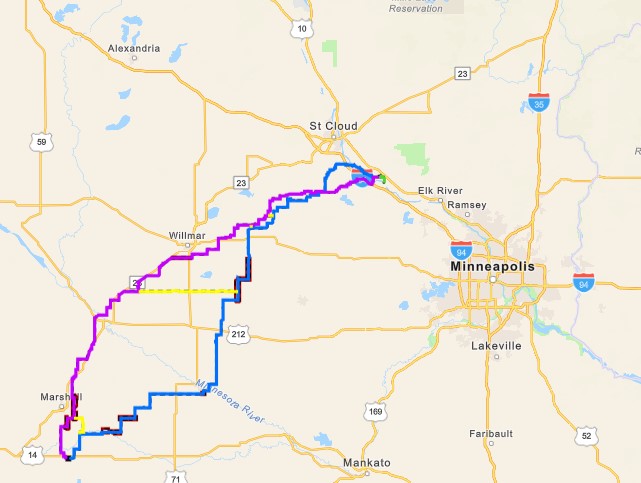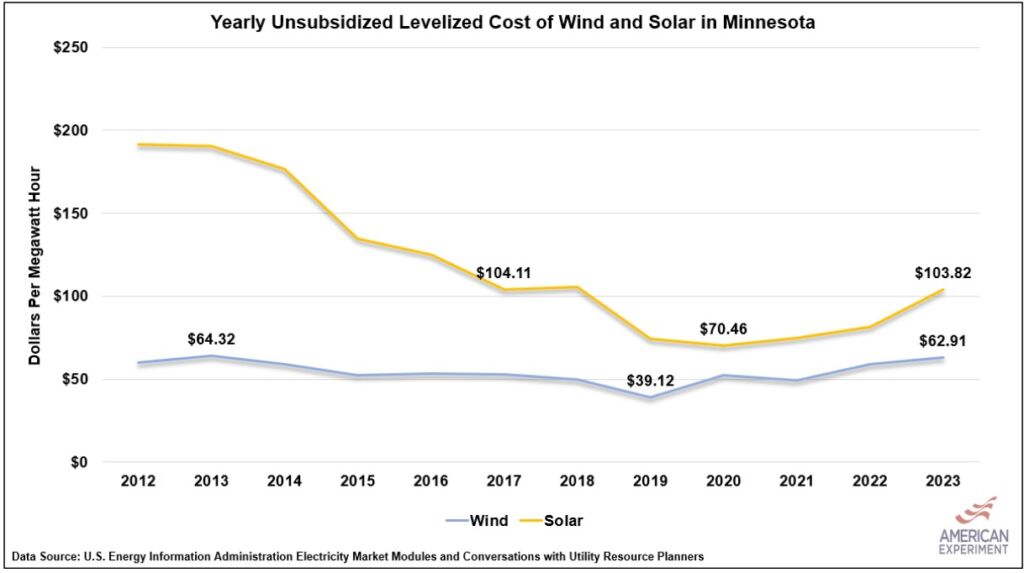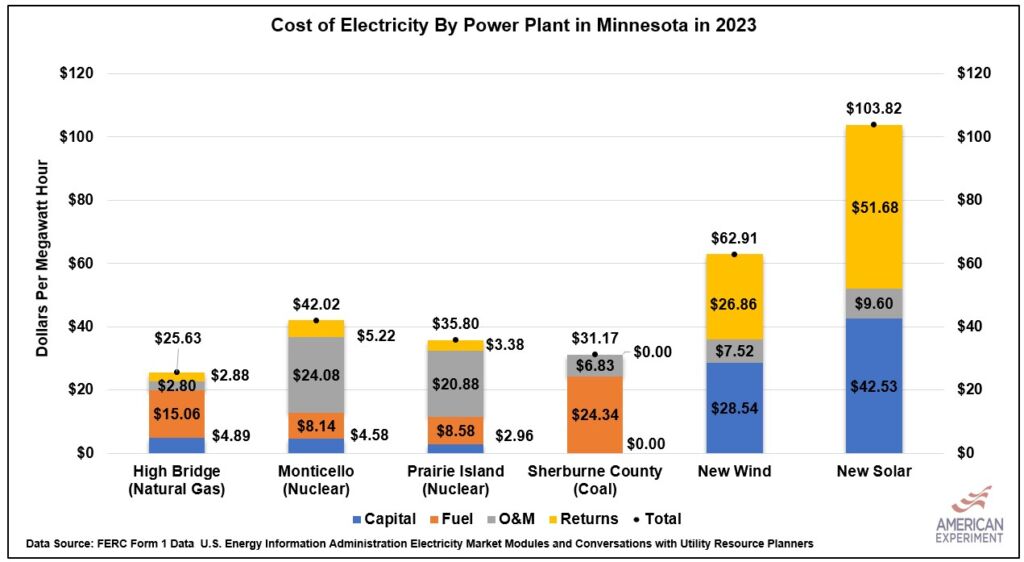The cost of Xcel Energy’s transmission line doubles to over $1.14 billion
Last Friday, the Star Tribune reported that the cost of Xcel Energy’s proposed transmission line from Becker, Minnesota, to Lyon County, has more than doubled, leaping from $528 million to $1.14 billion. Rising inflation for materials and labor and an extended project route were reported as being responsible for the ballooning costs of the project.
It is important to keep in mind that this transmission line isn’t really needed. It is only being built because Xcel Energy is shutting down the Sherburne County coal plant decades before the end of its potential useful life, and the company caved to pressure from wind and solar lobbyists and canceled a proposed natural gas plant in Becker.

Building this transmission line and the additional 4,000 megawatts (MW) of wind and solar capacity along it will necessarily increase the cost of electricity because wind and solar costs are soaring due to rising prices for materials and labor, interest rate hikes, and increasing costs to connect wind and solar projects to the broader transmission system.

It is important to note that these cost estimates do not include the cost of the transmission lines being constructed, meaning the actual cost of the electricity generated from the wind turbines and solar panels along the project route will be even higher.
This is significant because new wind already costs twice as much as the electricity generated by the Sherco plant, and new solar costs 3.33 times more than the cost of generating power at the coal-fired facility. Moreover, Sherco can generate power around the clock, but the wind turbines and solar panels require natural gas backup when the wind isn’t blowing, or the sun isn’t shining, adding to the ultimate cost paid by consumers.

The Minnesota Public Utilities Commission should not approve this cost increase because it will mean hundreds of millions of additional dollars spent on a transmission line that we never needed in the first place. Unfortunately, betting odds favor them rubber-stamping the proposal because they appear to care more about promoting renewables than ratepayers.